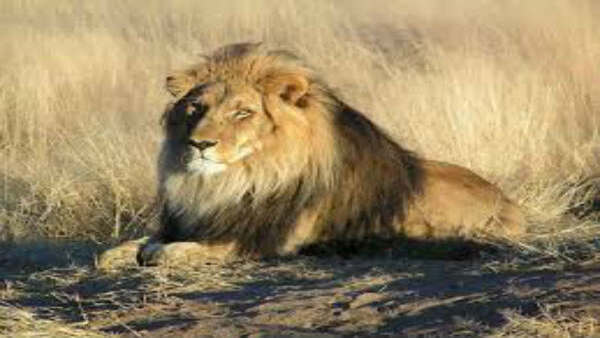
Are lions and tigers vulnerable to COVID-19?
New Delhi, June 10: Instances of wild animals getting infected by the novel coronavirus has triggered panic among many. These infections have happened even when staff were using personal protective equipment.

So, there is considerable risk that humans transmit SARS-CoV-2, the virus that causes COVID-19, to wildlife. If so, what would this mean for wild animals and people too? Let us have a look
In early May, Asiatic lions at Hyderabad Zoo tested positive for Covid-19, ringing an alarm bell that animals could be COVID-19 virus' next target.
Days after reports of the first such case emerged in Hyderabad, a lion at the Etawah Safari Park in Uttar Pradesh had tested positive while another was suspected to have contracted the contagion. Most of these animals became infected after contact with people with COVID-19.
Soon after, the government swung into action and ordered the closure of all zoological parks, national parks, tiger reserves and wildlife sanctuaries for visitors till further orders to control the spread of the pandemic.
Despite government action, the big cats like lions and tigers proved to be particularly vulnerable to the virus. But, with the death of Lioness Neela, aged 9, at the Aringnar Anna Zoological Park (AAZP) near Vandalur, Chennai, the covid mystery has only become a major worry.
How did the big cats catch COVID-19?
At a time when much uncertainty remains about the virus, the authorities are clueless about how the virus spread to the animals.
Reportedly, there are only two ways this could have happened, either through the animal caretaker or the feed provided to the animals.
Notably, people who are engaged in the distribution of meat follow all covid protocol and are all vaccinated and undergo regular RT-PCR tests. Besides, the feed itself is irradiated in the ultraviolet room. So, how did the animals aught the covid? again, it's a mystery.
Are lions vulnerable to COVID-19?
According to scientists, cats, dogs and ferrets are among species more susceptible to the virus. Even among cats, the zoo-bred lions are genetically weaker and, therefore, at greater risk. There is no reason to panic but we do need more surveillance.
The spike protein is the defining feature of a coronavirus. It initiates infection by binding with a host protein, called ACE2 receptor and this determined how much a species is susceptible to coronavirus infection.
Several studies have suggested that, domestic cats and their big cousins have been found or estimated to express ACE2 more significantly than many other species. Also, there are similarities in the ACE2 of cats and humans.
A paper in PLOS Computational Biology published in December 2020, looked at the ACE2 receptors of 10 different species and compared their affinity for binding with the virus spike protein.
The researchers have found that the most vulnerable species to coronavirus infection, next to humans, are ferrets, followed by cats and civets.
When a virus infects a new species, it sometimes mutates and the results can be unpredictable. But this time, there is no evidence that animals play a significant role in spreading SARS-CoV-2 to people.
Based on the available information to date, the risk of animals spreading COVID-19 to people is considered to be low. More studies are needed to understand if and how different animals could be affected by SARS-CoV-2.


 Click it and Unblock the Notifications
Click it and Unblock the Notifications

































